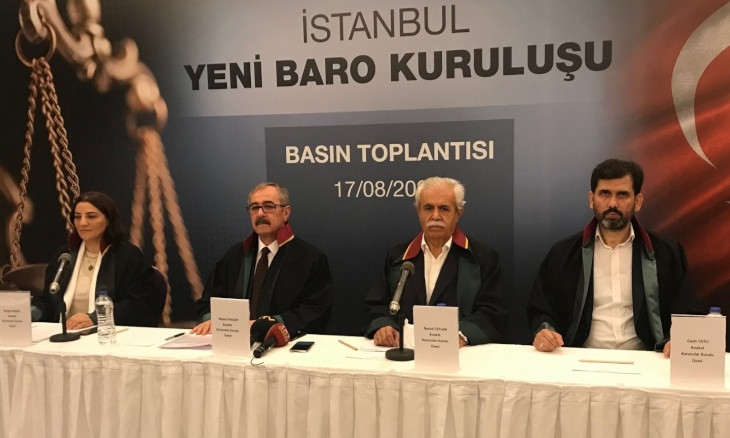Pro-gov't lawyers submit application for second bar association in Istanbul
A group of lawyers close to the ruling Justice and Development Party (AKP) have submitted their application to the Turkish Bar Associations (TBB) to form a second bar association in Istanbul. The group has collected just over 2,000 signatures required to establish their own association as per a new legislation which was passed by Turkish parliament in July of this year.
Duvar English
Following the passage of controversial legislation geared toward the decentralization of Turkey’s bar associations, a group of lawyers close to the ruling Justice and Development Party (AKP) have submitted their application to the Turkish Bar Associations (TBB) to form a second bar association in Istanbul.
 Pro-gov't lawyers gather 2,000 signatures required for formation of new bar association in Istanbul
Pro-gov't lawyers gather 2,000 signatures required for formation of new bar association in IstanbulThe founding member of the Istanbul No. 2 Bar Association, Cavit Tatlı, lawyer Şengül Karslı and laywer Niyazi Paksoy on Sept. 24 handed their petition to the TBB, having collected just above 2,000 signatures required to establish their own association.
Tatlı said that they have founded the second bar association despite all the barriers.
Nationalist Movement Party (MHP) vice chairman Feti Yıldız had announced on Sept. 21 that he registered himself under this newly formed bar association. On social media, he had shared a copy of the petition which would be submitted to the TTB on his behalf. The MHP is a junior coalition partner of the ruling AKP.
The legislation, which was passed by Turkish parliament in July of this year, seeks to split the TBB by permitting the establishment of alternative associations in Istanbul, Ankara, and İzmir, which hold nearly half of all lawyers in the country. It allows bar associations that have more than 5,000 members to split into other bar associations as long as they have at least 2,000 lawyers.
The law also aims to change the election system of the executive board of the TBB in a manner that allows the power of three biggest associations to be broken so that provincial organizations will have more of a say in the lawyers’ agenda.
